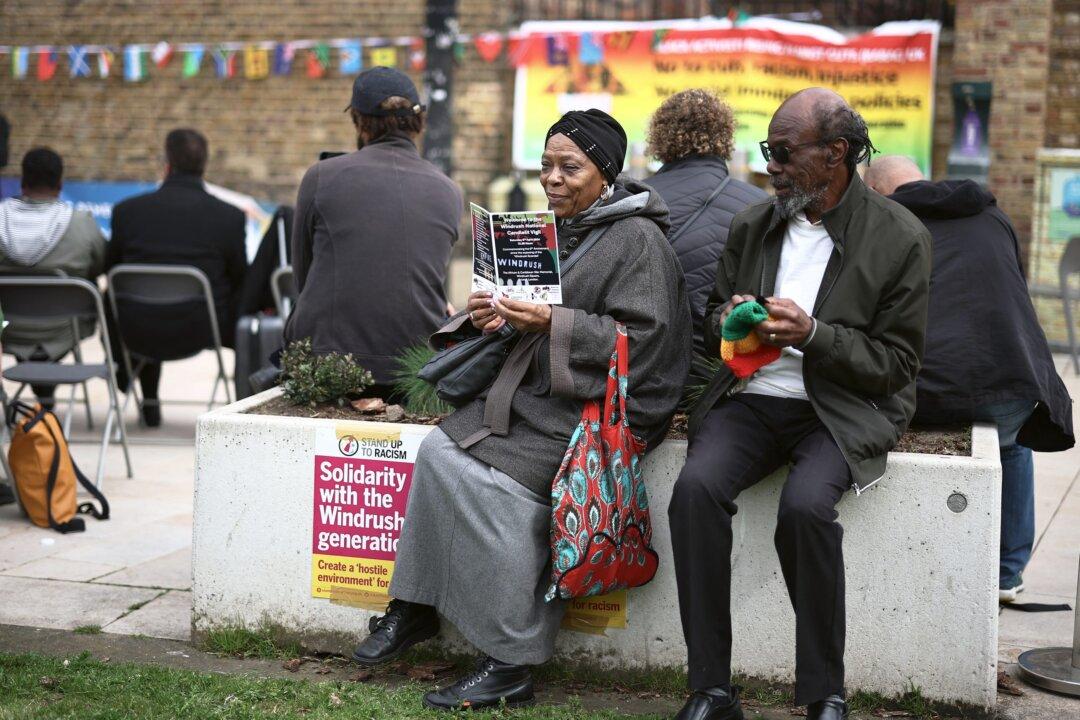The government’s decision to abandon some of the recommendations made after an independent review into the Windrush scandal was unlawful, the High Court has ruled.
The legal action against the Home Office was brought by 68-year-old Jamaica-born Trevor Donald, a Windrush victim.
After British law changed in 1971, the “Windrush generation,” along with migrants from other former British colonies, were given the right to permanently live in the UK.
The Windrush review was initially published in 2020 by solicitor Wendy Williams and produced 30 recommendations that were accepted by then-Home Secretary Priti Patel.
However, her successor, Ms. Braverman, dropped three out of the 30 recommendations.
These included holding reconciliation events for Windrush victims, introduction of a Migrants’ Commissioner responsible for speaking up for migrants, and increasing the powers of the independent chief inspector of borders and immigration.
Although the challenge to the reconciliation events was not upheld, Judge Dame Heather Williams found Ms. Braverman’s decision to drop the other two recommendations breached a “procedural legitimate expectation.”
There was no consultation with the Windrush community or Ms. Williams, the judge said, adding that the decision also was in breach of the secretary of state’s public sector equality duty.
‘Learned Lessons’
Mr. Donald, the claimant, was born in Jamaica in 1955 and came to the UK in 1967, where he lived until Feb. 22, 2010. He travelled to Jamaica and upon his return to Britain, he was not permitted to reenter the country.As part of the government’s response to the Windrush scandal, Mr. Donald was only able to enter the UK nine years later and was eventually granted citizenship on Jan. 4, 2022.
The judge said that Mr. Donald had “missed critical moments in the lives of his children and lost his council flat and most of his possessions.”
A separate hearing is set to consider any damages owed to Mr. Donald.
Solicitor Connie Sozi, representing the claimant, said that the court judgment “gives the government, yet again, an opportunity to do the right thing and properly ensure that it has learned lessons from the past.”
“The ease at which the government could renege (on previously accepted recommendations) suggests a stronger form of accountability is needed into the Windrush scandal. That would be through an inquiry. Whether it’s the current government or the next, public interest would be served by this,” Ms. Sozi said.
She called on the government to “show its commitment” and “implement all three recommendations.”
The BEO welcomed the High Court’s judgment and vowed to hold public institutions to account.
Communities across the UK will mark Windrush Day on June 22 to commemorate the contributions of migrants to the post-war economy.
“With Windrush Day on Saturday, we remember and stand with all Windrush scandal victims, survivors and their descendants, as well as the Windrush campaigners and activists who have fought for justice for eight years. This judgment honours the voices of Windrush victims and the justification for continuing to hold governments to account,” said BEO Chief Executive Timi Okuwa.
In the aftermath of the Windrush scandal, the government adopted the Windrush scheme in 2018. Its aim was to support eligible victims by providing them with free documentation proving their right to live and work in the UK.







